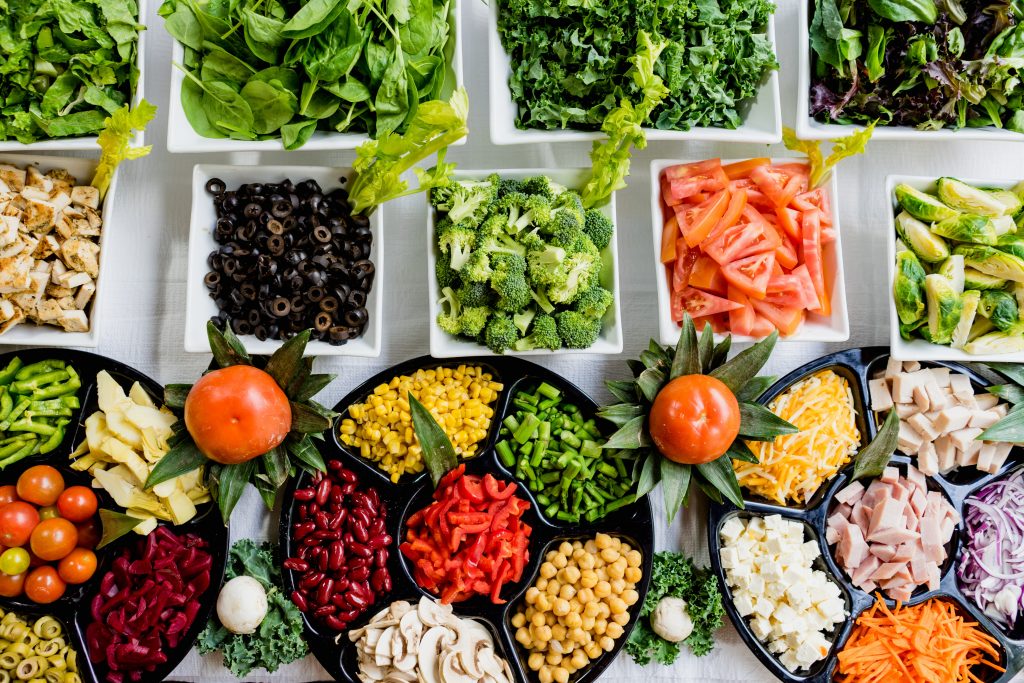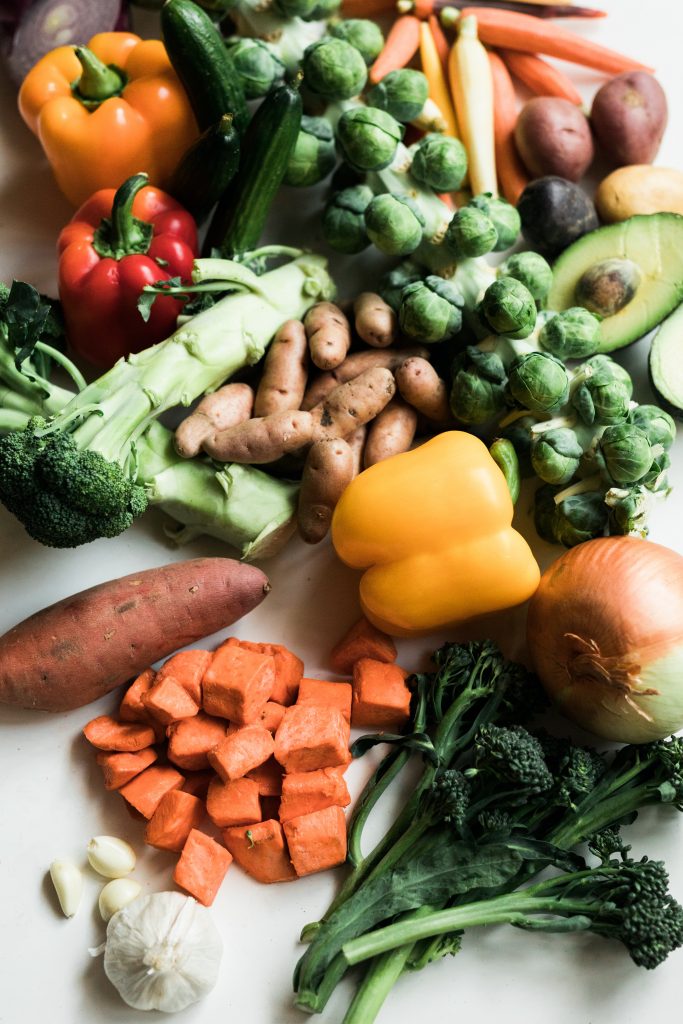FOOD AND HEALTH: A MONTH OF THEMED EVENTS
A series of events to show how the secret to health and well-being (ours and our planet’s) can be found in the food we eat every day.
Sandor Katz, David Quammen and Antonia Trichopoulou will be among the experts involved on the Terra Madre Salone del Gusto platform.
A good diet and an active lifestyle are the best way to ensure a long, healthy life. What’s more, choosing foods made using methods that preserve agrobiodiversity and have a low impact on the climate crisis is the most effective and concrete individual everyday action we can all take to protect the planet.
Food and health for Slow Food
Those are the principles on which Slow Food has based its work to understand and show how the secret to the health and well-being of individuals, the community and our planet lies in our everyday food. Slow Food believes that the global production system of highly processed foods is the cause of many public health problems, like obesity and malnutrition, around the world. Instead, an approach based on a healthy, pleasure-filled way of eating is not only good for us, it also helps protect the already fragile state of the planet by contributing less to biodiversity loss and the climate crisis.

The Slow Food network has long been active in food and taste education, with initiatives around the world like school canteen projects, school food gardens and campaigns. Slow Food is working hard to increase consumer awareness about health-related issues and to change the food system and food policy in order to ensure everyone can access good, clean and fair food.
Since 2019, this work has been organized more formally, offering anyone who is interested all the tools they need to orient themselves in the subject, available in different languages and at different levels of depth. Articles, interviews, stories about Slow Food Communities, tips for a climate-friendly diet, in-depth topic explorations, scientific studies, videos, online conferences, podcasts: a treasure trove of content, the result of extensive research at the Italian and international level and contributions from the worldwide network, coordinated by the international movement and made possible by the support of Reale Mutua, an Official Supporter of Slow Food Italy. Visit the Food and Health section of the website to find out more.
A month of events on www.terramadresalonedelgusto.com
Starting on January 30 and continuing for a month, there will be a special focus on food and health on the Terra Madre Salone del Gusto platform. Conferences and food talks will feature names like David Quammen talking about the loss of biodiversity and zoonosis, internationally renowned fermentation guru Sandor Katz and Antonia Trichopoulou on the Mediterranean diet and natural food production. Read on for a taste of the program:
CONFERENCES

FROM THE MEDITERRANEAN DIET TO NATURAL FOOD
January 30 at 11:00 CET
To participate you need to register
The nutritional value of the Mediterranean diet is widely recognized by researchers and scientists. At the base of its food pyramid are large amounts of fruit and vegetables, bread and pulses, less animal proteins and more vegetable proteins, and daily consumption of extra-virgin oil as a seasoning. But is it sufficient to talk about “bread” in general? Are all oils the same? What are the best choices for our health? Are all fruit and vegetables as good as each other, or should we take into account the way they’re grown? Do hybrid and native breeds have the same nutritional characteristics?
Slow Food believes we have to go beyond a simplistic conception of the Mediterranean diet and pay more attention to the quality of the foods we eat, and their effects on our bodies. We should ensure that our food is natural, meaning it should be cultivated with respect for natural resources, and without the use additives, preservatives, starters, colorants, antioxidants, industrial yeasts.
Discussant: Antonia Trichopoulou, MD, PhD, President of the Hellenic Health Foundation and Professor Emeritus, School of Medicine, University of Athens.
With:
- Angela Saba (Italy), shepherd and producer of the Maremma Raw Milk Pecorino Slow Food Presidium
- Souhad Azennoud (Morocco), trainer in agroecology, oil producer, coordinator of the Rif Small Spelt Presidium and Slow Food Jballas pour la Biodiversité Community.
- Yara El Ghalayini, researcher, Sommelier in olive oil, member of Slow Food Women of Olive Oil Community in Jordan.
Moderator: Nina Wolff, Acting Chairwoman of Slow Food Deutschland
Event languages: IT, EN, FR
THE HEALTH OF THE PLANET AND THE PEOPLE
February 5 at 18:00 CET
To participate you need to register
A SINGLE ISSUE HAS CAPTURED THE WORLD’S ATTENTION LIKE FEW OTHERS BEFORE: THE COVID-19 PANDEMIC.
The effects are being felt in every country around the world, where it has put a strain on human health as well as our economic and social well-being. The outbreak of the pandemic and its devastating consequences have reaffirmed the importance of radically changing our lifestyles and food choices, as they have a massive impact on our health and that of the planet. Scientists, together with the World Health Organization, see the decline of biodiversity as one of the main causes for the spread of new contagious diseases. The struggle to protect biodiversity is crucial: it is the only way to ensure the survival of the human race and indeed the countless other species on that call this planet home.
Can we deal with malnutrition by protecting and promoting biodiversity? Will biodiversity help us preserve the health of ecosystems? What role can policy play in promoting sustainable food systems and healthy diets?
Slow Food will release and discuss its position paper on food and health during the conference.
The conference and the position paper are organized with the support of Reale Mutua.
Event languages: IT, EN
With:
- Dr Kathy Sykes, Senior Advisor, Aging Initiative at US Environmental Protection Agency (EPA), experienced in public policy, environmental health, aging and sustainable communities.
- Dr Lindy Sharpe, Postdoctoral Research Fellow at Food Research Collaboration (FRC), based at the Centre for Food Policy at City, University of London.
- Prof. Dr. Heribert Hirt, Inst. of Plant Sciences, INRA Paris, France; Center for Desert Agriculture, KAUST, Saudi Arabia and Max Perutz Laboratories, Univ. of Vienna, Austria.
The dialogue will be moderated by Andrea Pezzana, MD, PsyD, Slow Food scientific advisor and contact person for Food and Health. The conference will open with a Food Talk of David Quammen, focusing on the relationship between the loss of biodiversity and the outbreak of zoonoses.
FOOD TALKS
(All Food Talks are available in their original language, with subtitles where necessary).
- February 4
Vivien How, professor at the Faculty of Medicine and Health Sciences, Universiti Putra Malaysia.
The role of chemistry in agriculture
A local and global perspective on this issue, looking at the short- and long-term effects and the changes needed in agriculture to benefit the health of the planet and humans.
- February 10
Ana Paula Bortoletto, nutritionist from IDEC, Instituto Brasileiro de Defesa do Consumidor.
Human rights and proper nutrition
- February 11
David Quammen, journalist and author of the book Spillover.
The connections between ecological destruction, pandemics and the food we eat
- February 17
Sandor Katz, fermentation expert.
The marvels of fermentation
- February 18
Natalia Bajsa, professor of microbiology at the Universidad de la República di Montevideo, Uruguay.
GMOs and their impact on health
- February 24
Renata Alleva, nutritionist and expert in Food Science.
Healthy eating begins at birth!
In collaboration with Alce Nero, Official Supporter of Slow Food Italy.
Jessica Fanzo‘s Food Talk, “The Well-Being of the Planet and People,” is also part of the Food and Health program within Terra Madre Salone del Gusto, and can be viewed here.
EGGS, SALMON, DAIRY, MEAT AND “LIGHT” FOODS: AN ANIMATED SERIES SETS OUT TO EXPOSE FAKE NEWS ABOUT FOOD AND HEALTH
Is it true that eggs are bad for you, and if you stop eating them you’ll reduce your cholesterol? Is salmon really the best addition to a low-calorie
diet and a good source of omega-3s? Are there equally delicious alternatives that are better for the environment and our health? These and many other questions will be answered in an animated series produced by Slow Food to expose some of the fake news around food and health.
Common beliefs around eggs, salmon, dairy products, meat and “light” foods will be explored using simple language and illustrated by animated drawings and subtitles, explaining how with a little bit of care, we can make more conscious choices that are better for our health, the environment and even our wallets!
WEIGH YOUR OPTIONS! A GUIDE TO HEALTHY EATING
What is the best investment in immediate pleasure that ensures future health? Simple! The secret to a good, clean and fair diet lies in balancing a range of quality foods in our weekly diet and dedicating a little more time and care to food shopping and what we do in the kitchen. It’s easier to do than you think! Slow Food’s booklet, “What Should We Eat? Weigh Your Options!” is a great place to start.
Published at Thu, 28 Jan 2021 14:42:25 +0000




Comments
Loading…